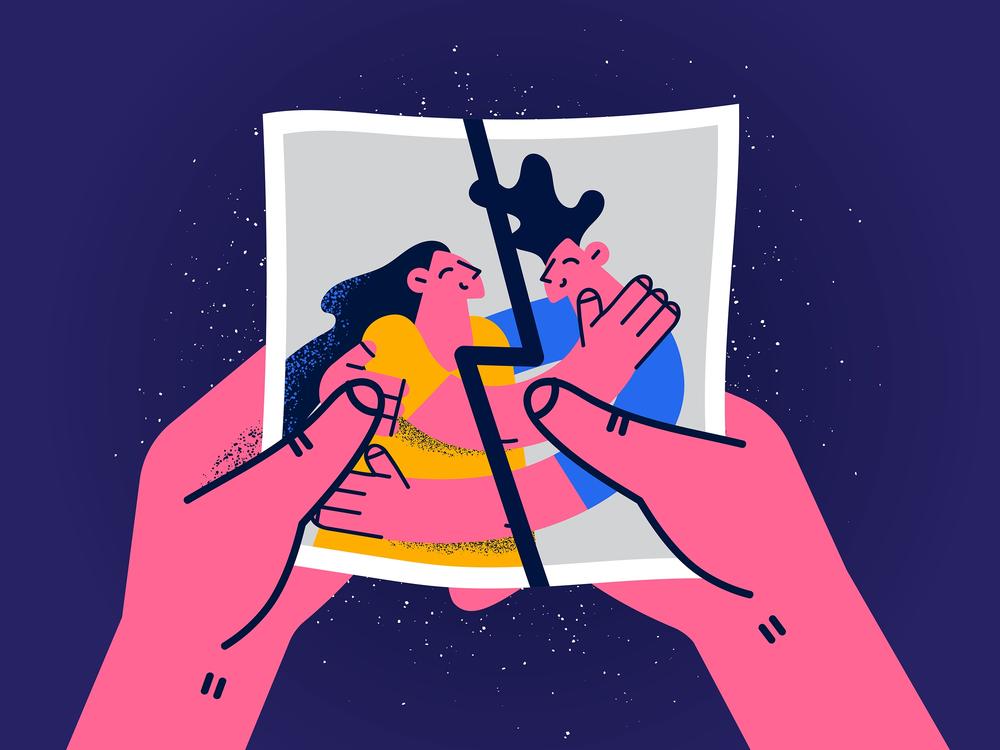Section Branding
Header Content
Should you be friends with your ex? 3 questions to ask yourself
Primary Content
When a romantic relationship ends, it can feel like a total loss. How do you go from being an important person in someone's life to a complete stranger?
Experts say it doesn't have to be all or nothing. If your relationship was healthy and ended on good terms, it’s possible to stay friends, acquaintances or somewhere in between. (However, if you were abused or felt unsafe in your relationship, keep your distance.)
“There may be reasons to be friendly, even if emotionally you’re not in a place where you can authentically dive head-first into a full-blown friendship,” says psychologist Marisa Franco, author of Platonic: How The Science of Attachment Can Help You Make — and Keep — Friends.
To figure out your post-breakup dynamic, “really check in with yourself” about what you want the next phase of your relationship to look like, says therapist Xavier Patschke, a psychotherapist with the Gender and Sexuality Therapy Center in New York.
Patschke and Franco share three questions to ask yourself before building a platonic connection with a former romantic partner.
Question 1: Why do I want to stay in touch with my ex?
There are many practical reasons why former partners choose to stay in each other’s lives, say Franco and Patschke. Perhaps you share kids or pets together and need to maintain a civil relationship. Maybe you’re part of the same friend group or small community and know you’ll run into each other. Or maybe you were friends before you started dating and want to continue that friendship.
Whatever the reason, be honest about your intentions. “You might realize you don’t actually want to be friends with them because they don’t look like the people you tend to want in your life platonically,” says Franco.
Question 2: Am I in a healthy place to stay in touch with my ex?
If you’re reaching out to your ex because you still desire them and are hoping to get back together, “wait until those feelings subside,” says Franco.
Same goes for if you’re struggling to accept the breakup and feel desperate to keep your former partner in your life, she says. You don’t want to treat friendship as a consolation prize.
Franco knows that’s easier said than done. “It can feel like such a loss [for a partner] to go from one of the closest people in your world to not talking to them at all.”
But keep in mind: it can be harder to get over your ex if you remain friends, according to a study on post-breakup friendships. “You’re more likely to desire your ex romantically, and they’re more likely to desire you,” says Franco.
So make sure you’re both ready for that next step. You’ll know you’ve reached an appropriate level of emotional distance when you want your ex to be happy regardless of whether or not their life includes you, says Franco.
Question 3: What do I want a platonic relationship with my ex to look like?
There’s a range of possibilities, says Franco. Do you want a close friendship that involves asking each other for dating advice? Does an occasional check-in feel more appropriate? Or would you settle on just being polite when you run into each other unexpectedly?
If there’s a mismatch between what you both want, respect the boundaries of the person who wants less intimacy. Just like a romantic relationship, you can’t force a connection.
And if you’re not sure what’s appropriate, you can test out different levels of friendship. “It’s OK for the boundary to start at, ‘I don’t know if I want to hear about your future dates,’ “ says Patschke. “ ‘But we’ll try it and we’ll check in again.’ “
“The nice thing about being friends with anyone, including your ex, is that you can decide how close you want the friendship to be,” says Franco. “It’s not like romantic relationships where it’s very all or none.”
We want to hear from you: Are you still friends with your ex?
How did you and your ex handle your relationship post-breakup? Tell us about how you made your decision and describe your relationship now. Send an email to lifekit@npr.org with your first and last name and we may feature your response in a story on NPR.org
This story was edited by Malaka Gharib. The visual editor is Beck Harlan. We'd love to hear from you. Leave us a voicemail at 202-216-9823, or email us at LifeKit@npr.org.
Listen to Life Kit on Apple Podcasts and Spotify, and sign up for our newsletter.

